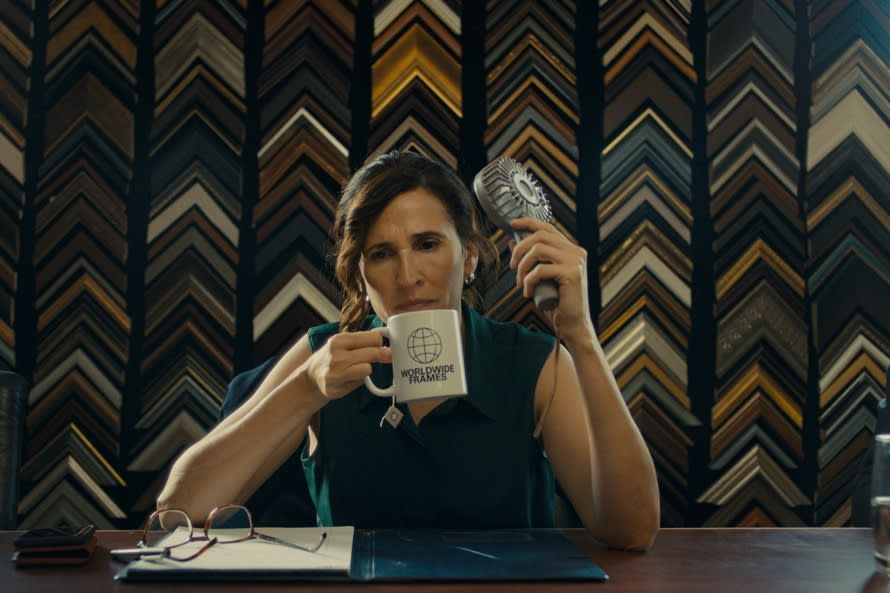At first glance, Suze, the comedy-drama film directed by Canadians Dane Clark and Linsey Stewart, appears to tread all-too-familiar ground as a mom deals with significant life change after her daughter leaves home for university. But gradually, the tired "empty nest mom" narrative is flipped on its head by an unexpected yet meaningful twist.
Single mother Susan, the titular Suze (Michaela Watkins), says an emotional and loving goodbye to her bratty, self-absorbed daughter Brooke (Sara Waisglass), who is heading to McGill University in Montreal after graduation. The long-dreaded bon voyage having passed, Suze is now left with the painful reality of facing a quiet, empty home.
Brooke’s absence hits Susan hard: a montage shows her crying, drinking wine, sending Brooke continuously unanswered voice messages, and desperately attempting to embrace her newfound freedom by "dancing around the house in her underwear," as suggested by a coworker. This solitude is quickly interrupted by the presence of Brooke's ex-boyfriend Gage (Charlie Gillespie), recently dumped and similarly lonely.
"Suze, it's kind of funny, huh?" says Gage in his goofy, playful manner. "We both got left by the same person." Though his own heartbreak cuts deep, a tragic incident finds Susan having to take care of him, despite obvious hesitation.
Through well-written impromptu jaunts, late-night food and emotional exchanges filmed with great delicacy, we watch their bond grow and strengthen. "I don’t know anyone who has ever been nicer to me," Susan reveals to Gage, even though she initially judges him as "kind of a loser."
Although Suze has the earmarkings of the perennial complex mother-daughter relationship drama — films like Greta Gerwig's Lady Bird and Richard Benjamin's Mermaids come to mind — it never fully veers into that territory, offering us a new and commendable take, and avoiding any treacly sentiment.
Watkins and Gillespie, ever the odd couple, articulate the open-hearted vulnerability of their characters with ease and charm; together, their natural chemistry lends a great degree of authenticity to the film and its message of self-worth.
Whether purposeful or not, the film's slightly desaturated indie dramedy colour palette creates a sense of warmth and intimacy, and aids in our closeness to both Susan and Gage, as well as investment in their growth.
And then there are close-up shots sprinkled throughout, which are impactful in their own right. In one memorable scene, the camera momentarily rests on Susan's face as she reacts to Gage singing a touching rendition of her comfort song, the '80s power ballad "It Must Have Been Love." Each and every subtle expression is on display, and, wordlessly, an absolute change of heart is exposed — which is also another nod to Watkin's infectious lead performance (as well as Gillespie's singing).
Suze, much like the lesson instilled upon Susan and Gage about faulty first perceptions, should not be judged by its cover; dig deep and viewers will discover a tale of the transformative power of unlikely relationships and connection, and how a shared experience can allow one to rediscover their purpose.
